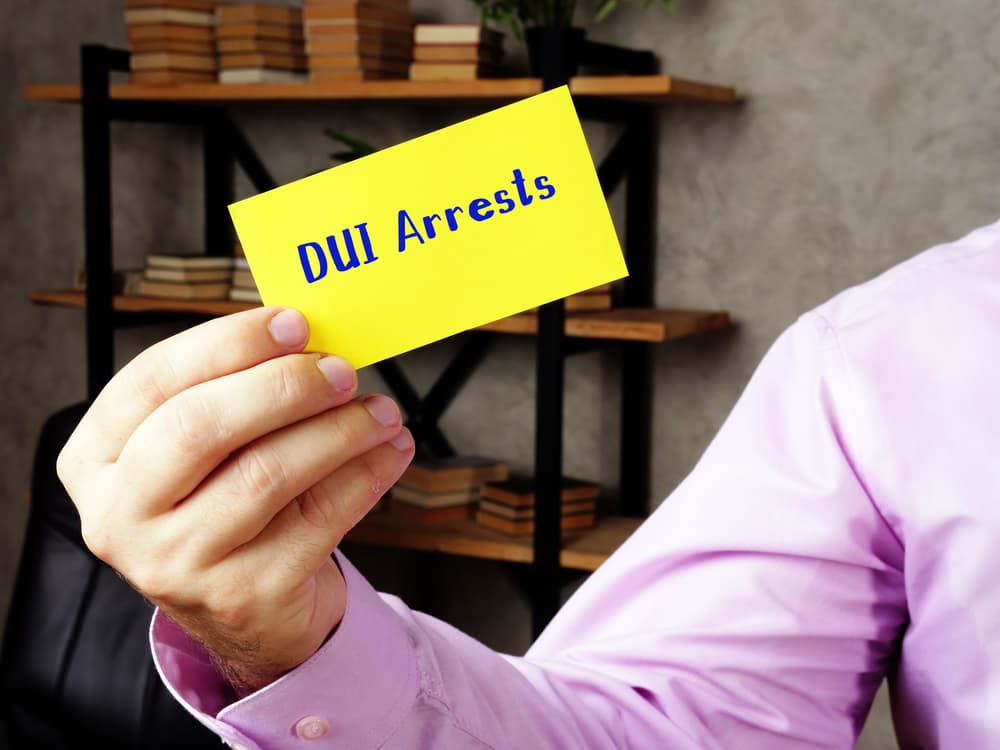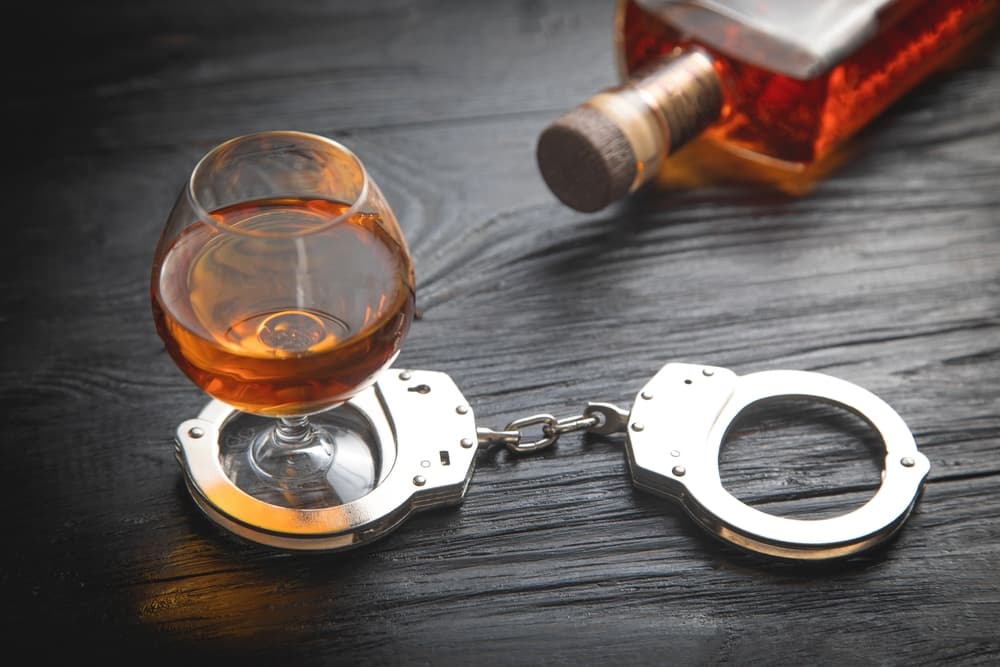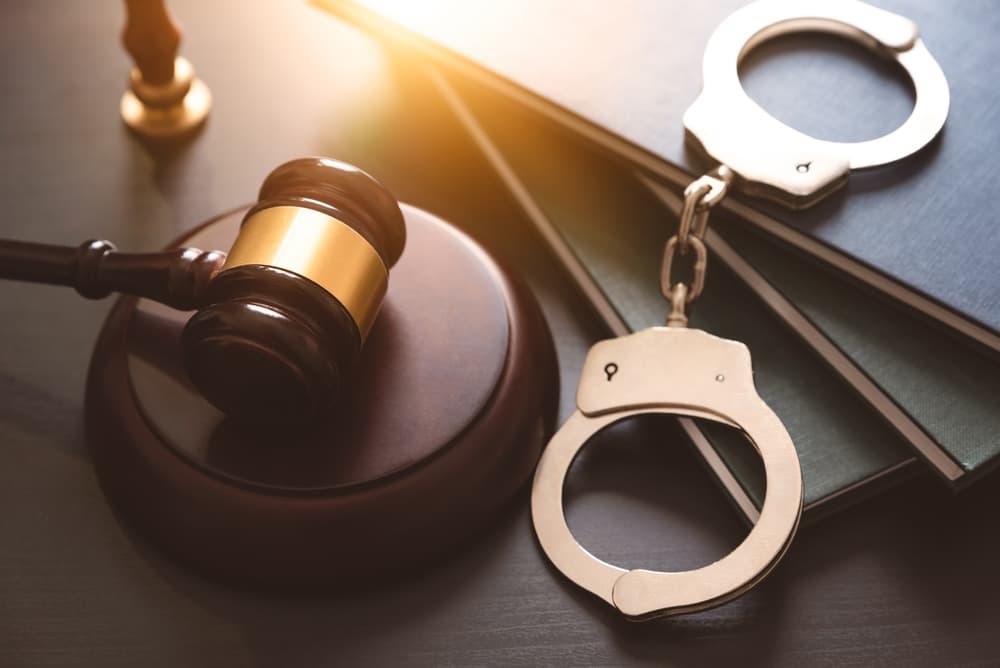After a Driving Under the Influence (DUI) arrest in California, the legal process begins with booking and a temporary license, followed by an arraignment where charges are formally read. A DMV hearing can then be requested to challenge a license suspension. The case may proceed to pre-trial conferences, a trial, or a plea deal.
A skilled California DUI defense lawyer can help by reviewing the evidence, identifying legal defenses, challenging the validity of sobriety tests, and ensuring that your rights are upheld. If necessary, an attorney can negotiate a plea deal or represent you at trial to secure the best possible outcome for your case.
Elements of a DUI Charge in California
In California, a prosecutor must prove several legal elements to obtain a conviction for DUI. A DUI charge can arise from driving under the influence of alcohol, drugs, or a combination of both. The key elements that a prosecutor must establish are:
- Driving a Vehicle: The first thing the prosecutor must prove is that the accused (the defendant) was driving a vehicle. This doesn’t necessarily mean that the defendant was driving on a highway; it can be on any public or private road. Even if the vehicle was stopped, the prosecution may argue that the defendant was in control of the vehicle and had the intent to drive.
- Being Under the Influence: To convict someone of DUI, the prosecutor must show that the defendant was under the influence of alcohol or drugs. “Under the influence” means that the defendant’s ability to operate the vehicle was impaired to a degree that they were unable to drive safely. This is often proven with evidence such as field sobriety tests, observations of the defendant’s behavior, or the results of a blood alcohol concentration (BAC) test.
- Impairment to Drive Safely: Even if the defendant’s BAC is below the legal limit, the prosecution must still prove that the defendant was impaired by alcohol or drugs to the extent that they could not drive safely. This can include erratic driving behavior, such as swerving, speeding, or failing to follow traffic laws. Law enforcement officers may also testify about signs of intoxication, such as slurred speech, red eyes, or the smell of alcohol.
In a DUI case, the prosecutor’s job is to present enough evidence to convince the judge or jury beyond a reasonable doubt that the defendant was driving under the influence. If any of these elements cannot be proven, the defendant may be found not guilty.
What is the Legal Process after Being Arrested on a California DUI?

In California, after being arrested for DUI, there is a specific legal process that follows. Here’s an overview of the steps that happen after a DUI arrest:
- Arrest and Booking: Once you’re arrested for DUI, law enforcement officers will take you to the station for booking. This involves taking your personal information, fingerprinting you, and photographing you. They may also ask for a blood or breath sample to measure your BAC or to test for drugs. Refusing to submit to a chemical test can lead to serious consequences, such as automatic license suspension.
- Temporary License and DMV Hearing: After a DUI arrest, your driver’s license is often confiscated, and you are issued a temporary license that is valid for 30 days. Within 10 days of your arrest, you have the right to request a hearing with the California Department of Motor Vehicles (DMV) to challenge the suspension of your license. If you don’t request this hearing, your license will automatically be suspended after 30 days.
- Arraignment: The first court appearance in the DUI process is the arraignment, which typically happens within 48 hours of the arrest if you’re in custody. During the arraignment, the charges against you are read, and you are asked to enter a plea of guilty, not guilty, or no contest. If you plead not guilty, the court will set a date for the next steps in your case.
- Pre-Trial Conferences: After the arraignment, there may be one or more pre-trial conferences. These meetings allow your DUI defense lawyer and the prosecution to discuss the case and explore possible plea deals. In some cases, the prosecutor may offer a deal to reduce the charges or penalties in exchange for a guilty plea.
- Trial: If no plea deal is reached, the case may go to trial. During the trial, the prosecution will present evidence, including the results of sobriety tests, BAC readings, and witness testimony, to prove that you were driving under the influence. Your defense attorney will challenge the evidence and may argue that there were flaws in the arrest or testing procedures. If you are found guilty, the judge will determine the penalties.
- Sentencing: If convicted, penalties for a DUI in California can include fines, license suspension, mandatory DUI education programs, probation, or even jail time. The exact penalties depend on factors like whether it’s your first offense or if there were aggravating circumstances, like having a high BAC or causing an accident.
What are the Potential Penalties and Collateral Consequences of a California DUI Conviction?

In California, a DUI conviction can lead to a variety of penalties and collateral consequences, which can significantly affect your life. The severity of these penalties often depends on factors such as whether it’s your first offense, your BAC at the time of arrest, and whether there were any aggravating circumstances (like accidents or injuries). Here’s an overview of the potential penalties and consequences you can face after a DUI conviction:
Potential Penalties for a DUI Conviction
- Fines: A DUI conviction typically comes with fines, which can range from $390 to $1,000 or more, plus additional fees and assessments that can increase the total cost. These fines are intended to deter future offenses and cover the costs of court programs.
- License Suspension: A DUI conviction will usually result in the suspension of your driver’s license. For a first offense, the suspension is typically 6 months. For repeat offenders, or if your BAC was particularly high, the suspension can be longer, and you may be required to install an ignition interlock device (IID) in your vehicle at your own expense.
- Jail Time: A first-time DUI conviction can result in up to 6 months in county jail, although many offenders serve little to no jail time with probation. For repeat offenders or those with aggravating factors (like causing injury or having a high BAC), jail time can be longer.
- Probation: Most DUI offenders are placed on probation, which usually lasts for 3 to 5 years. During probation, you must comply with conditions such as attending DUI education programs, avoiding further legal trouble, and possibly completing community service.
- DUI Education Program: As part of your sentence, you may also be required to attend a DUI education program, which can last from 3 months to 18 months, depending on your offense and whether it’s a first or repeat DUI.
Potential Collateral Consequences of a DUI Conviction
- Increased Insurance Rates: After a DUI conviction, your car insurance rates are likely to increase significantly. Insurance companies view DUI convictions as a major risk, and you may be required to carry high-risk insurance (SR-22) for several years.
- Effects on Employment: A DUI conviction can negatively affect your job prospects – especially if your work involves driving or operating heavy machinery. Some employers may view a DUI as a sign of irresponsibility or poor judgment, which may affect promotions or hiring decisions.
- Criminal Record: A DUI conviction is a criminal offense and will remain on your record, potentially affecting future legal situations and public perception. Expungement is possible in some cases, but it requires additional legal action.
A DUI conviction in California comes with serious penalties and long-term consequences. If you’re facing DUI charges, it’s important to understand both the legal penalties and the collateral effects that may follow.
Defenses to a California DUI Charge
In California, there are several legal defenses that can be used to challenge a DUI charge. The goal of these defenses is to show that the prosecution cannot prove the elements of the crime beyond a reasonable doubt. Here are some of the most common legal defenses to a DUI charge:
- Inaccurate or Improper Testing: One of the most common defenses is that the chemical tests (breath, blood, or urine) used to determine BAC were inaccurate or improperly administered. For instance, if the breathalyzer machine was not properly calibrated or maintained, it may produce false results. Additionally, if the officer did not follow the correct procedures when administering the test, the results may be challenged. Blood tests can also be faulty due to contamination or improper handling.
- Illegal Traffic Stop: Another defense is that the officer did not have a valid reason to stop the vehicle in the first place. For a DUI arrest to be legal, law enforcement must have a reasonable suspicion that a driver is violating the law, such as swerving or speeding. If the officer stopped you without cause or a legitimate reason, the court may rule that any evidence gathered after the stop is inadmissible. This can result in a complete dismissal of the case.
- Officer’s Lack of Probable Cause for Arrest: Even if you were stopped legally, the officer must have probable cause to arrest you for DUI. This means there must be enough evidence, such as failing field sobriety tests or showing signs of intoxication, to justify an arrest. If the officer didn’t have enough evidence to reasonably believe that you were under the influence at the time of the arrest, the case may be dismissed.
- Medical Conditions or Medications: Certain medical conditions or medications can produce symptoms that may be mistaken for signs of intoxication. For example, conditions like diabetes or acid reflux can cause a breathalyzer to produce inaccurate results. Some prescription or over-the-counter medications can also affect coordination, speech, or eye movement, which can be misinterpreted as signs of impairment.
- Rising BAC Defense: This defense argues that the defendant’s BAC was below the legal limit at the time they were driving but rose above the limit after the arrest. Alcohol takes time to enter the bloodstream, so if a person was arrested shortly after drinking, their BAC may increase while they were in custody, even though they were not impaired while driving.
How Can a Criminal Defense Attorney Help with Your California DUI Case?

A knowledgeable California DUI defense attorney can be vital in helping you handle the difficult legal process after a DUI arrest. From challenging the evidence to negotiating with the prosecution, an experienced attorney can significantly improve the outcome of your case. Here’s how they can help:
- Challenging the Evidence: One of the key roles of a DUI defense attorney is to scrutinize the evidence presented against you. In many cases, the prosecution’s case depends on chemical test results (like breathalyzer or blood tests), field sobriety tests, and officer observations. A skilled attorney will examine whether these tests were properly administered and whether the officer followed the correct procedures. For example, they may challenge the accuracy of a breathalyzer test if the machine wasn’t calibrated or maintained properly or if the test was administered incorrectly. They may also dispute the results of a blood test if proper procedures weren’t followed, such as contamination during collection or improper storage.
- Investigating the Arrest Circumstances: A DUI defense lawyer will also investigate the circumstances surrounding your arrest to determine whether law enforcement followed the proper legal procedures. If the officer did not have a valid reason to stop your vehicle, or if they did not have probable cause to arrest you, your attorney may file a motion to suppress evidence. If successful, this can result in the dismissal of your case.
- Exploring Legal Defenses: A California DUI defense attorney is experienced in identifying and presenting legal defenses tailored to your case. These can include challenging the results of sobriety tests, arguing that any signs of impairment were due to medical conditions or prescription medications, or presenting a “rising BAC” defense. Your attorney can also explore alternative explanations for your behavior that may not involve impairment.
- Negotiating Plea Deals: If the evidence against you is strong, a DUI defense attorney can negotiate with the prosecution to reduce the charges or penalties. They may work out a plea deal that results in lesser charges, a reduction in fines, or a more lenient sentence, such as probation instead of jail time.
- Representing You in Court: If your case goes to trial, a DUI defense attorney will represent you in court. They will present your defense, cross-examine witnesses, and challenge the prosecution’s evidence. Their experience in court can help ensure that your rights are protected.
Speak to an Experienced California Criminal Defense Lawyer Right Away
If you are currently facing a DUI in California, a criminal defense attorney can be extremely helpful. Your lawyer will determine your eligibility for various legal defenses and work to pursue the best possible result in your DUI case.